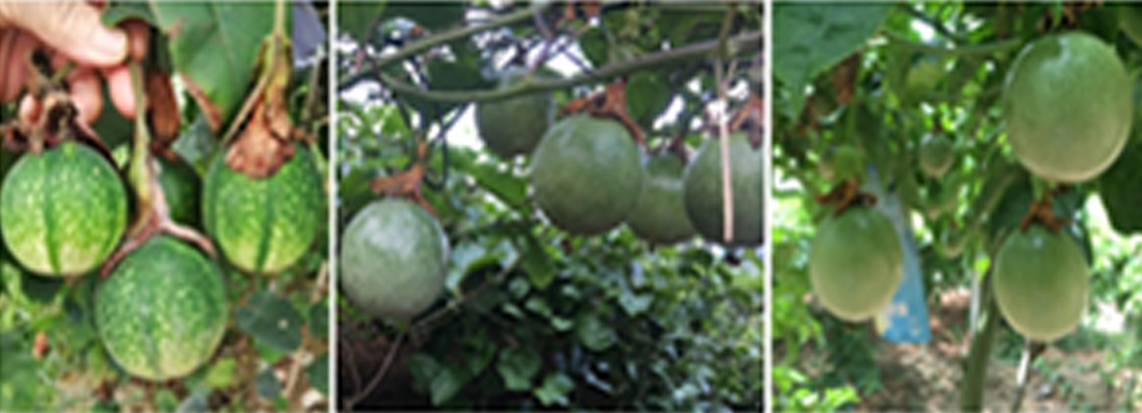Passionfruit Genome Summary
| Yellow fruit | Purple fruit | |||
| Data sources | Unpublish | Genome reannotation | ||
| Genome Assembly Size | 1,393.47 Mb(99.64%) | 1,279.58 Mb | ||
| Pseudo-chromosome number | 9 | 9 | ||
| Haplotype Gene Annotation | ||||
| Protein-coding Genes | 2,7861 | 3,0136 | ||
| Gene size | 3,285 bp | 3302 | ||
| Exons/gene | 5.374 | 5.58 | ||
| Non-coding RNA | ||||
| All | 1,303 | 1671 | ||
| miRNA | 133 | 111 | ||
| rRNA | 165 | 143 | ||
| tRNA | 1005 | 1427 |
Welcome to the Passionfruit Genomics Database (PGD)
The trial version of the passion fruit genome website, constructed through collaboration between Professor Fang Shouguo's research group at Yangtze University and Professor Wu Zujian's research group at Fujian Agriculture and Forestry University, has been launched and can be accessed at http://passionfruit.com.cn/. The specific work was completed by postdoctoral researcher Yu Chaowei. We welcome everyone to try it out or recommend its use and provide valuable feedback.
Passionfruit (Passion fruit) is an economically important and widely cultivated crop in many sub-tropical and tropical regions of the world, valued for its flavor and nutritional qualities. Understanding the entire genome sequence of the passionfruit is crucial for accelerating breeding and utilization. The purple (Peu_P) and yellow (Peu_Y) passionfruits are the most dominant varieties grown commercially. This passionfruit genome database contains extensive information on markers for both purple and yellow passionfruits. The public annotation information for the purple passionfruit genome is incomplete, so we performed data reannotation and function prediction. For the yellow passionfruit, we performed whole-genome sequencing to obtain a high-quality genome assembly at the chromosome level (unpublished). In addition to integrating two passionfruit varieties' genomic information, a series of effective analysis tools were developed for gene family analysis in the passionfruit genome database. The availability of genome sequences in this database will greatly promote passionfruit breeding research.
Researchers who wish to cite the Passionfruit Genome Annotation Database website are encouraged to refer to our recent publication:
- Passionfruit Genomic Database (PGD): a comprehensive resource for passionfruit genomics. Chaowei Yu; Peng Wang; Shengjie Zhang; Jindian Liu; Yingyin Cheng; Songbai Zhang; Zujian Wu BMC Genomics, 2024, 25(1).
| This work is supported by units and grants : Yangtze University, Fujian Agriculture and Forestry University,and Fujian Provincial Department of Finance. |
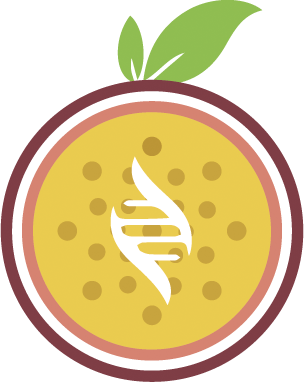
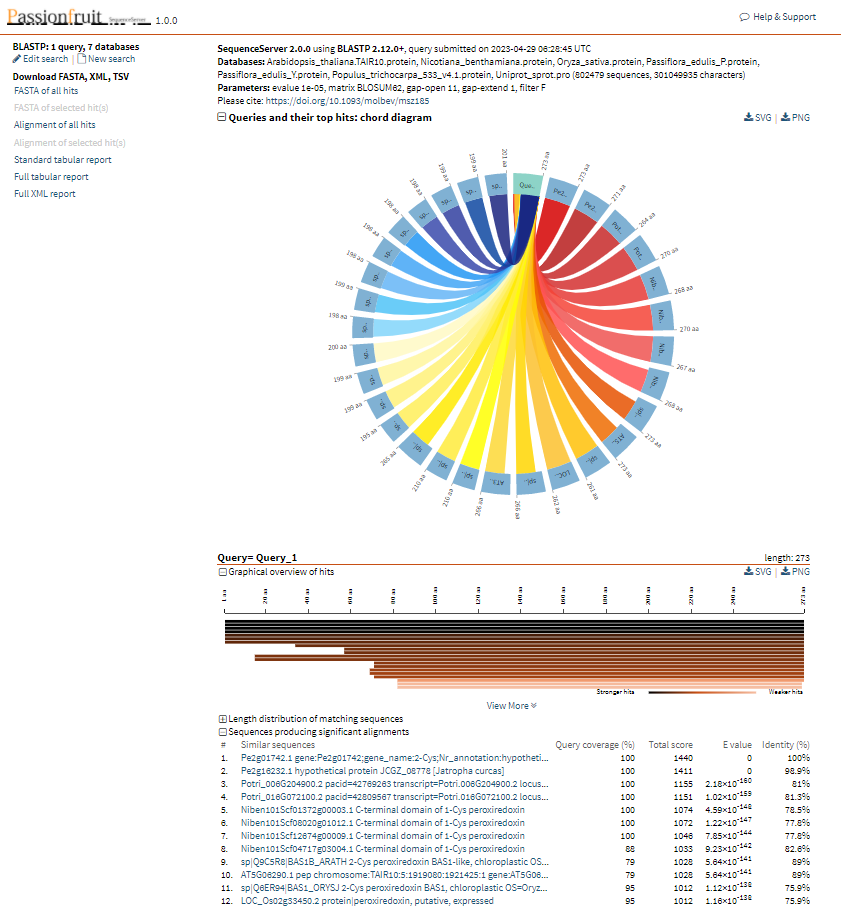 Blast Search
Blast Search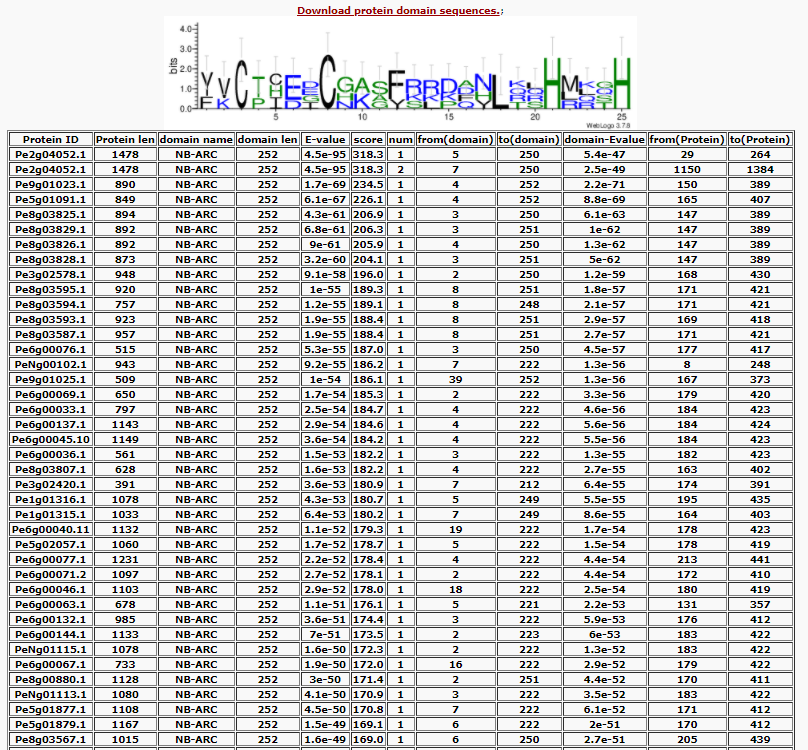 Protein family Search
Protein family Search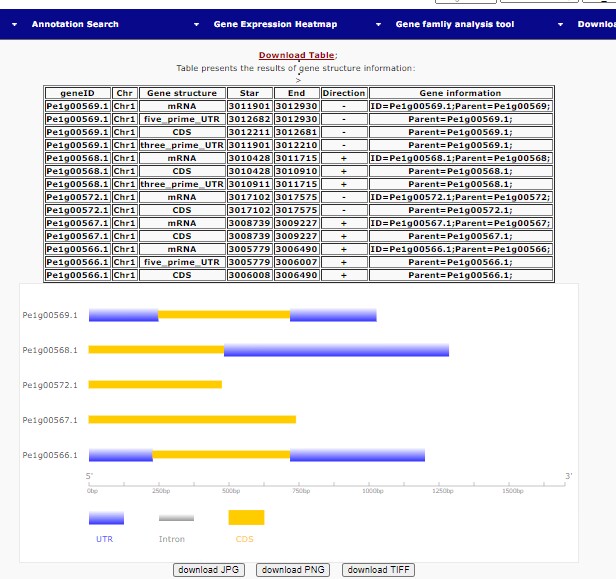 Gene and Protein structure analysis
Gene and Protein structure analysis
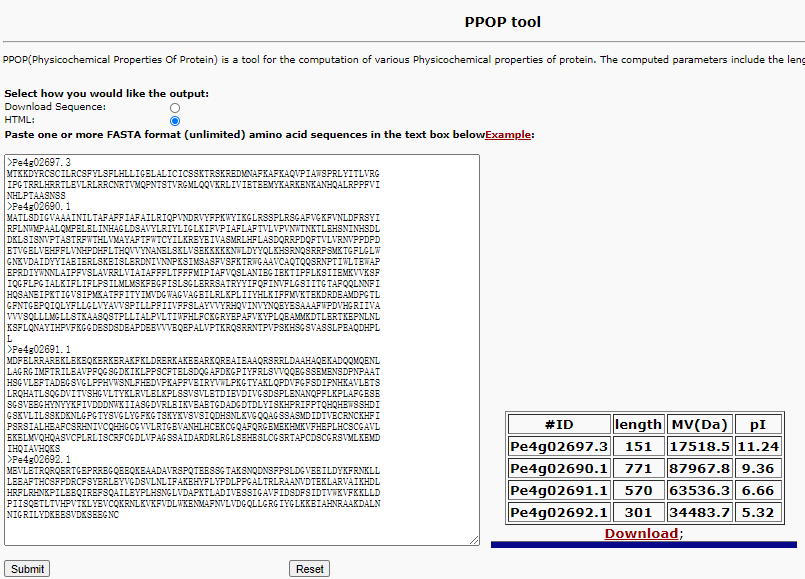 Physicochemical analysis of protein
Physicochemical analysis of protein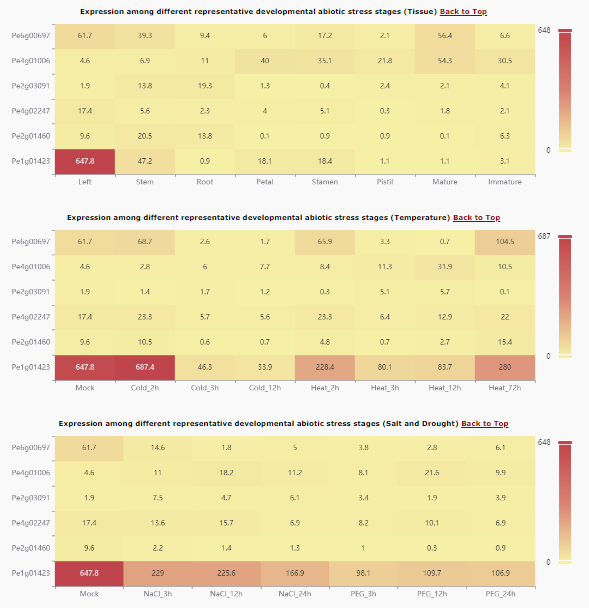 Expression pattern analysis
Expression pattern analysis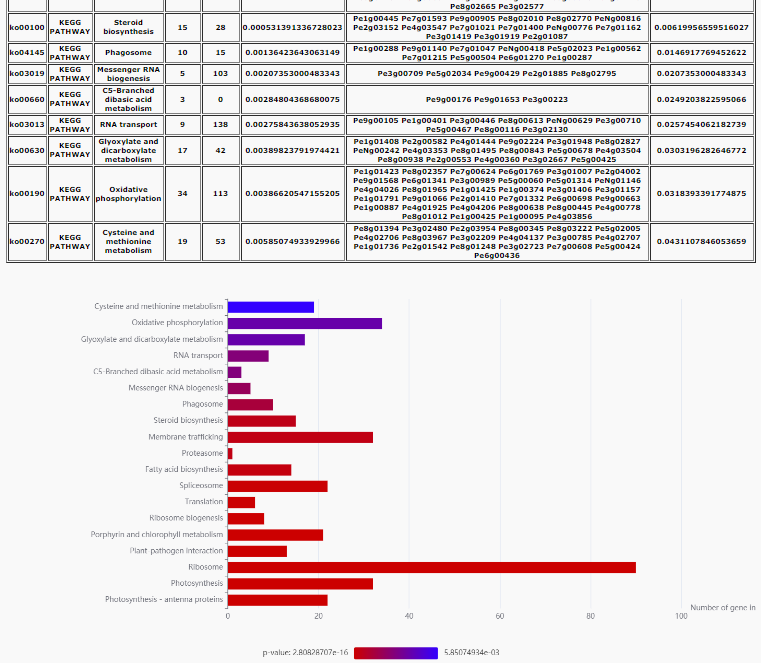 KEGG and GO enrich analysis
KEGG and GO enrich analysis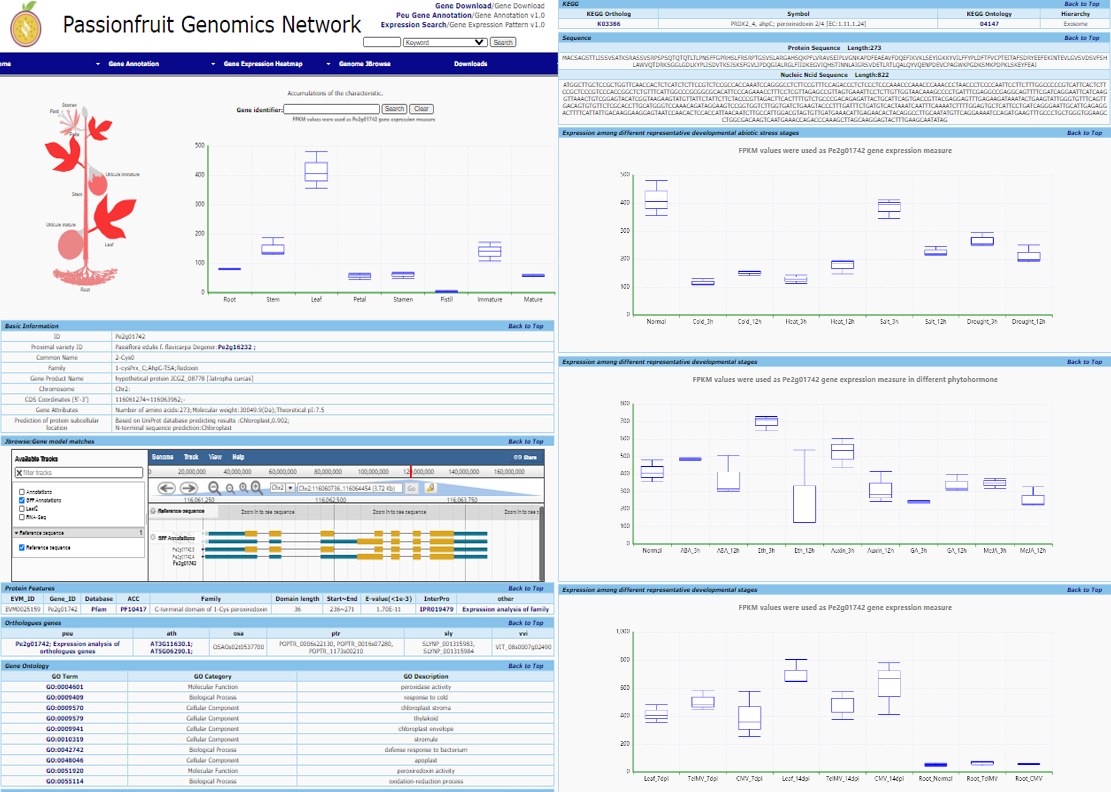 Basic information and expression patterns of genes
Basic information and expression patterns of genes
